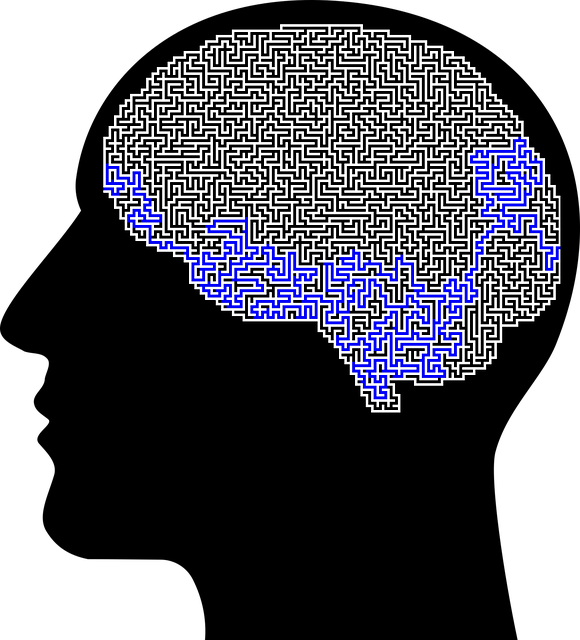Parker Gender Identity Therapy (PGIT) promotes inclusive mental healthcare through community outreach, focusing on educational workshops, safe space collaborations, and open dialogues to improve mood management among gender-diverse individuals. Their strategic framework involves assessing local services and cultural nuances, setting clear objectives aligned with community aspirations, and engaging stakeholders to create sustainable initiatives. By organizing public campaigns and self-care workshops, PGIT enhances access to care and fosters trust through cultural sensitivity and collaboration with local leaders. They measure success using qualitative and quantitative data, offering long-term support to ensure improved mental well-being within diverse communities.
“Parker Gender Identity Therapy (PGIT) has pioneered community outreach programs, highlighting its commitment to inclusive healthcare. This article explores the multifaceted approach to understanding, designing, and implementing effective outreach strategies. From recognizing the importance of community engagement for PGIT’s success to providing practical guides and overcoming challenges, each section offers valuable insights. Discover how these initiatives impact gender-affirming care and foster a more inclusive society, with real-world examples from PGIT’s innovative practices.”
- Understanding Community Outreach: Why It Matters for Parker Gender Identity Therapy
- Designing Effective Programs: A Step-by-Step Guide for PGIT
- Engaging the Community: Strategies to Build Trust and Collaboration
- Overcoming Challenges: Addressing Barriers to Implementation
- Measuring Success: Evaluating the Impact of Outreach Initiatives at PGIT
Understanding Community Outreach: Why It Matters for Parker Gender Identity Therapy

Community outreach programs play a pivotal role in expanding access to mental healthcare services, particularly for underrepresented communities. For Parker Gender Identity Therapy (PGIT), understanding and embracing community outreach is paramount in its mission to provide inclusive support. Beyond treating individual patients, PGIT recognizes that effective therapy often extends into the fabric of society. By engaging with local communities, they can dispel misconceptions, foster cultural sensitivity in mental healthcare practice, and integrate Self-Care Practices tailored to diverse needs.
This approach aligns with PGIT’s goal to improve Mood Management for gender diverse individuals. Through community outreach, therapists can facilitate open dialogues, offer educational workshops, and collaborate with local organizations to create safe spaces. By building bridges between therapy and the broader community, PGIT ensures that its services are not only accessible but also culturally relevant, ultimately enhancing the overall well-being of the populations they serve.
Designing Effective Programs: A Step-by-Step Guide for PGIT

Designing Effective Programs: A Step-by-Step Guide for Parker Gender Identity Therapy (PGIT) involves a meticulous process to ensure impactful outcomes, especially when addressing diverse communities’ unique needs. The first step is to assess the local community’s mental health landscape, identifying gaps in services and cultural sensitivities. This foundation allows PGIT to tailor programs that resonate with the target audience, fostering trust and engagement.
A structured approach includes defining clear objectives, whether focusing on Mental Health Education Programs Design or raising Cultural Sensitivity in Mental Healthcare Practice. These goals guide content creation, ensuring it aligns with the community’s concerns and aspirations. Involving community stakeholders in the design process brings valuable insights, making the programs more relevant and accessible. By following this strategic framework, PGIT can create sustainable initiatives that positively impact mental health awareness and understanding within diverse communities.
Engaging the Community: Strategies to Build Trust and Collaboration

Engaging the community is a vital step in implementing successful outreach programs, particularly when focusing on sensitive topics like gender identity therapy. Building trust and fostering collaboration requires tailored strategies that address unique cultural and social dynamics. At Parker Gender Identity Therapy, we recognize the importance of cultural sensitivity in mental healthcare practice. Engaging with the community through public awareness campaigns development and self-care routine workshops can significantly enhance access to care and support.
By actively listening to the needs and concerns of diverse populations, we create safe spaces where individuals feel empowered to share their experiences. This collaborative approach ensures that outreach efforts resonate with the community, fostering a deeper connection and understanding. Ultimately, these strategies not only improve public awareness campaigns development but also contribute to better mental health outcomes by promoting self-care routine development for better mental health within the community.
Overcoming Challenges: Addressing Barriers to Implementation

Implementing community outreach programs can come with its fair share of challenges and barriers. Organizations like Parker Gender Identity Therapy must navigate complex landscapes to ensure their initiatives resonate and effectively address local needs. One significant hurdle is burnout prevention among volunteers and staff, especially in demanding fields where high levels of depression prevention are already prevalent. Balancing passion with personal well-being is crucial for sustained community engagement.
Moreover, cultural and social barriers often require careful consideration. Organizations must foster compassion cultivation practices to build trust and bridge gaps between the outreach program and diverse communities it aims to serve. Sensitivity training, inclusive communication strategies, and collaboration with local leaders can significantly overcome these challenges, ensuring that programs are not only implemented but also deeply impactful and welcomed by the community at large.
Measuring Success: Evaluating the Impact of Outreach Initiatives at PGIT

Measuring success is an integral part of any community outreach program, and at Parker Gender Identity Therapy (PGIT), they employ various methods to evaluate the impact of their initiatives. By assessing the outcomes, PGIT can ensure their programs are effective and tailored to the needs of the community they serve. This involves collecting qualitative and quantitative data through surveys, feedback forms, and interviews with participants. For instance, they might track improvements in mental health indicators, increased access to resources, or enhanced social integration within the community.
The organization also emphasizes the importance of long-term follow-up to understand the sustainability of program outcomes. They offer ongoing support and encourage participants to engage in activities like Communication Strategies workshops, Mindfulness Meditation sessions, and Social Skills Training, which can contribute to positive changes. These strategies enable individuals to build resilience, foster connections, and maintain their mental well-being over time, ultimately strengthening the community’s fabric.
Community outreach programs, as demonstrated by the successful models at Parker Gender Identity Therapy (PGIT), are instrumental in fostering understanding and support for diverse identities. By implementing these strategies, organizations like PGIT can navigate challenges, build trust, and measure meaningful impact. This step-by-step guide equips professionals with the tools to create inclusive initiatives that resonate within their communities, ultimately enhancing mental health services for all individuals, regardless of gender identity.










